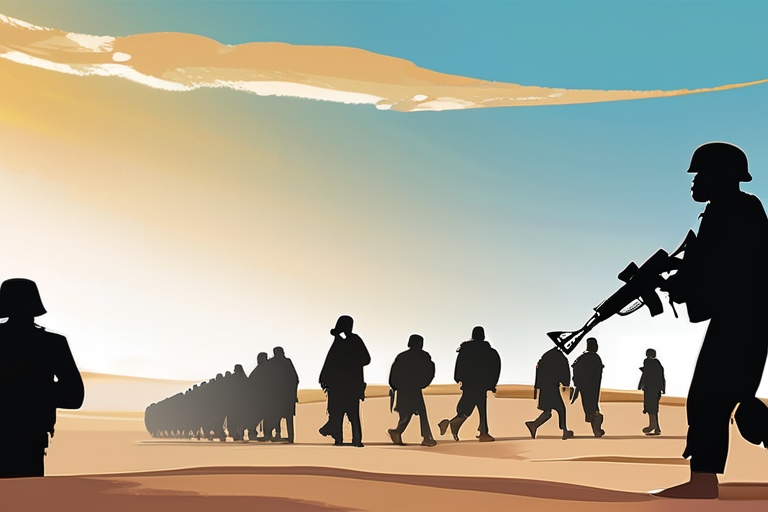

Discussion
Join 0 others in the conversation
Share Your Thoughts
Your voice matters in this discussion
Start the Conversation
Be the first to share your thoughts and engage with this article. Your perspective matters!
More Stories
Discover articles from our community
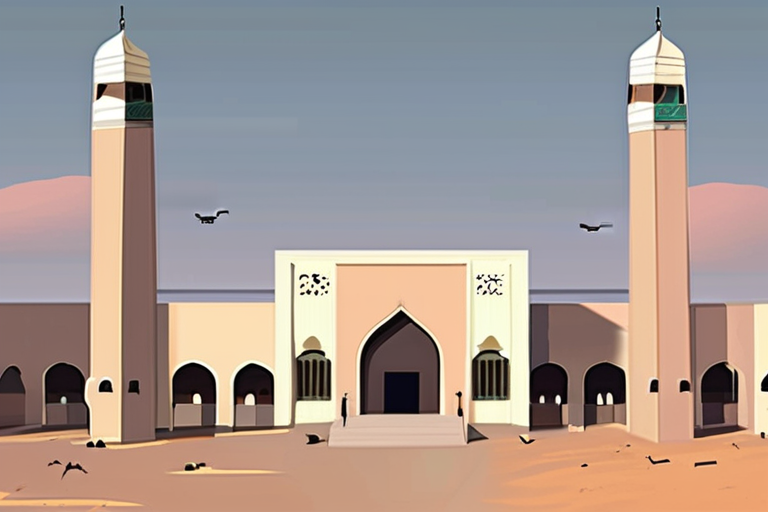
Drone Strike on Sudan Mosque Leaves 78 Dead and 20 Injured in Devastating Morning Attack
 Hoppi
Hoppi
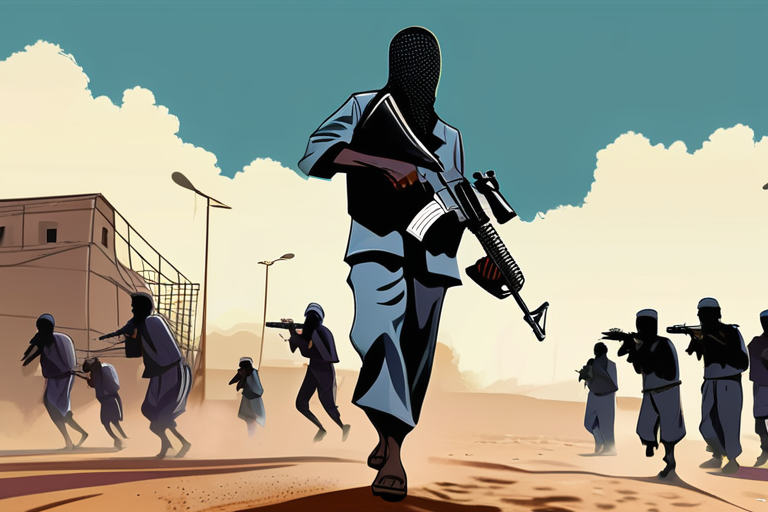
Al-Shabaab Seizes Ground Amid Somalia's Fractured Politics
 Hoppi
Hoppi
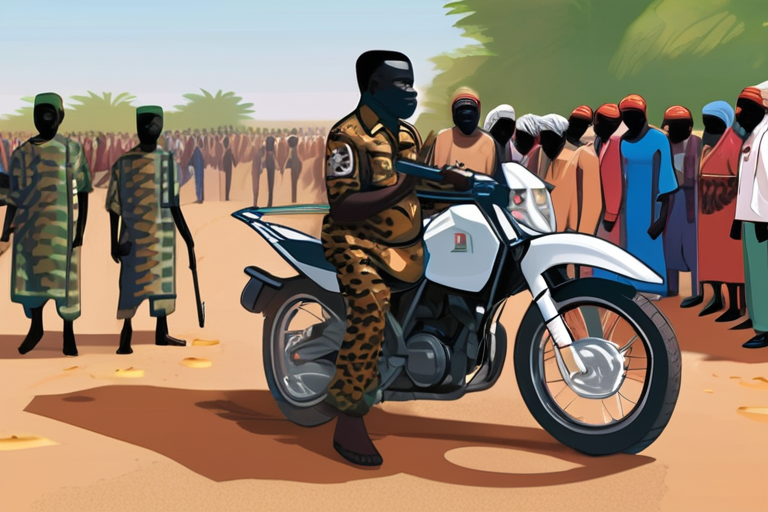
Gunmen on Motorbikes Wreak Havoc at Niger Baptism Ceremony, Leaving 22 Dead
 Hoppi
Hoppi
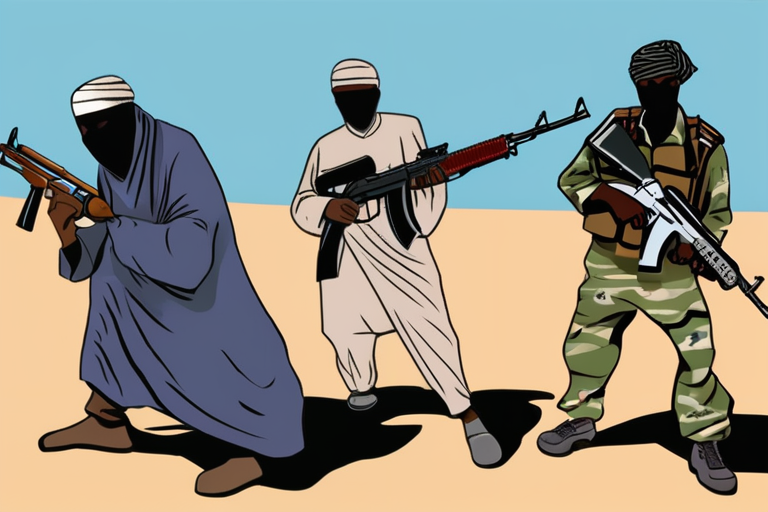
Al-Shabaab Seizes Ground Amid Somalia's Fragmented Politics
 Hoppi
Hoppi
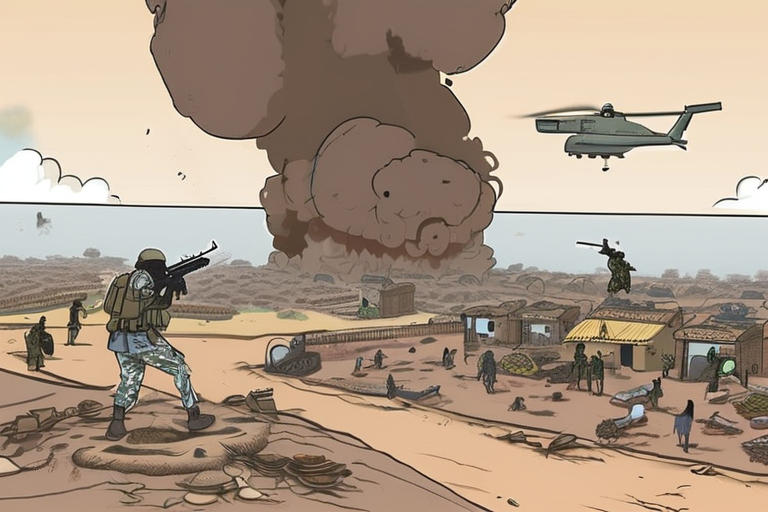
Al-Shabaab Seizes Ground Amid Somalia's Fragmented Politics
 Hoppi
Hoppi
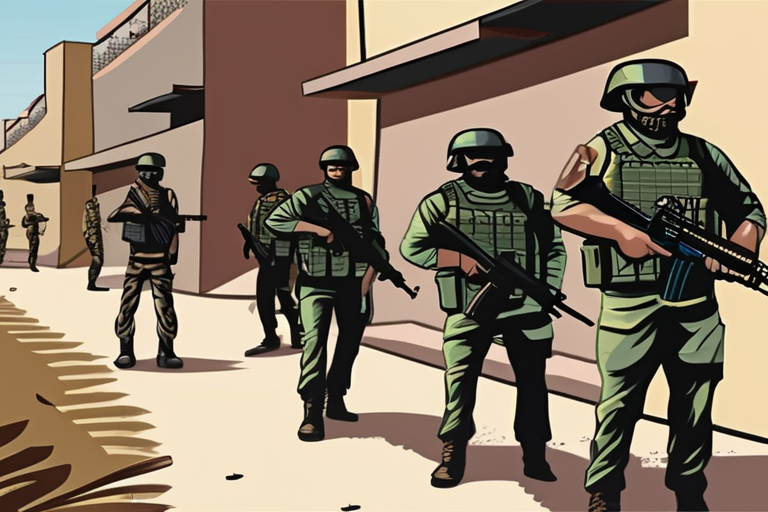
Pakistani Forces Launch Deadly Raid on Militant Compound, Leaving 24 Dead
 Hoppi
Hoppi

Drone Strike on Sudan Mosque Leaves 78 Dead and 20 Injured in Devastating Morning Attack
Breaking News: Drone Strike on Sudan Mosque Kills 78 A devastating drone strike on a mosque in El-Fasher, Sudan's Darfur …

Hoppi

Al-Shabaab Seizes Ground Amid Somalia's Fractured Politics
The Fear Was Immense: Al-Shabaab Exploits Fragmented Politics to Reclaim Land in Somalia MOGADISHU, SOMALIA - In a shocking turn …

Hoppi

Gunmen on Motorbikes Wreak Havoc at Niger Baptism Ceremony, Leaving 22 Dead
Breaking News: Niger Attack Leaves 22 Dead in Tillabéri Region Gunmen on motorbikes attacked a baptism ceremony in the Tillabéri …

Hoppi

Al-Shabaab Seizes Ground Amid Somalia's Fragmented Politics
The Fear Was Immense: Al-Shabaab Exploits Fragmented Politics to Reclaim Land in Somalia MOGADISHU, SOMALIA - In a strategic stalemate …

Hoppi

Al-Shabaab Seizes Ground Amid Somalia's Fragmented Politics
The Fear Was Immense: Al-Shabaab Exploits Fragmented Politics to Reclaim Land in Somalia MOGADISHU, SOMALIA - In a matter of …

Hoppi

Pakistani Forces Launch Deadly Raid on Militant Compound, Leaving 24 Dead
Breaking News: Pakistan Raid Leaves Over 20 Dead At least 24 people, including civilians and militants, were killed during a …

Hoppi
